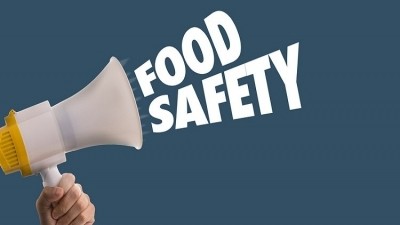Japan GM foods update: Tighter labelling regulations issued for products with genetically modified components

The Japanese government has had a tumultuous love-hate relationship with GM foods for a number of years, with some departments believing these require stronger labelling management.
Others, meanwhile, have been working to provide proof that GM crops are of no danger to the local ecosystem or food safety, and can provide a much-needed boost to the local food supply.
Earlier this year, the local Consumer Affairs Agency (CAA) published documentation announcing that nine major agricultural products are now subject to mandatory GM labelling (up from the previous eight), as are processed foods that use these as ingredients.
“In Japan, the nine major agricultural products that are now subject to mandatory GM labelling are soybeans, corn, potatoes, rapeseed, cottonseed, alfalfa, sugar beet, papaya and mustard greens – [mustard greens] are the latest addition to this list as GM mustard greens recently received the approval and green light by authorities for sale in Japan,” CAA said via a formal statement.
“Additionally, all processed foods that are made using these nine products as raw materials will also be subject to mandatory GM labelling if the GM DNA or protein produced by this DNA is still detectable after processing. At this point, this will be monitored for 33 major product categories.”
The 33 processed food product categories highlighted by CAA cover include just about every type of food that could be made from the nine types of produce, e.g. tofu, soymilk, corn and potato snacks, canned foods, starches, grits, flours and so on.
Of particular focus in the announcement were GM soybeans engineered to produce stearidonic acid as well as corn engineered with high lysine content, with the agency specially stressing that these as are staple items such as corn oil or soy sauce made using these as ingredients will also be subject to GM labelling.
“That said, if in processed foods the use of detection technology that has been determined by technical experts does not yield any traces of genetically modified DNA or relevant proteins, the manufacturers will not be obligated to include GM labels as there is no scientific difference in quality between these and regular products,” said the agency.
“However, manufacturers must take note that from April 2023, the national GM labelling system will include a separate voluntary system [which includes the] ‘not genetically modified (non-GM)’ voluntary labelling.
“At present food products with 5% or less of unintentional GM content can make this claim, but under the new system products that have ‘not detected’ amounts of GM components will be able to make this claim.”
Making it easier or harder for GM foods?
Although at first glance it may appear that Japan is making things somewhat tougher for GM foods by making standards more stringent, a closer look seems to show that the government is actually stepping up things to accelerate GM acceptance in the country.
Whilst manufacturers and producers do have stricter standards to conform to, this is laying a good foundation for the authorities to provide consumers with food safety assurance, and its slow but steady addition of new GM food products (e.g. mustard greens) does show that it is looking to broaden its portfolio of approved GM foods.
A good example of other markets that are pretty pro-GM foods but taking it slowly are Australia and New Zealand, both of which have been steadily increasing their range of approved GM foods under Food Standards Australia New Zealand (FSANZ) over the past few years.
FSANZ has not come out to directly voice its support for GM foods’ inclusion in the food supply, but it has been granting multiple approvals on a yearly basis especially for GM corn and soybean products - even making a raft of approvals throughout the peak of the COVID-19 pandemic.
Similar to this, Japan has also not voiced complete support but has published numerous documents and infographics to improve the image of GM foods to consumers, dedicating entire webpages to this on government sites.
The motivation behind this is not hard to deduce – government data from the Ministry of Agriculture, Forestry and Fisheries (MAFF) has already shown that the local food sufficiency rate has been declining yearly, from 73% in 1965 to around the 40% mark in the past several years, and it got a further rude wake-up call in the form of supply chain constraints during the COVID-19 pandemic.
“Japan’s food imports are highly dependent on a small number of countries/regions [as] food production is always basically first directed to domestic consumption in each country before the surplus is exported,” MAFF said during the supply crunch.
“So to maintain and improve food self-sufficiency, Japan will work to seek out more agricultural resources and technology to boost yields, increase stockpiles and stabilise our imports.”

















